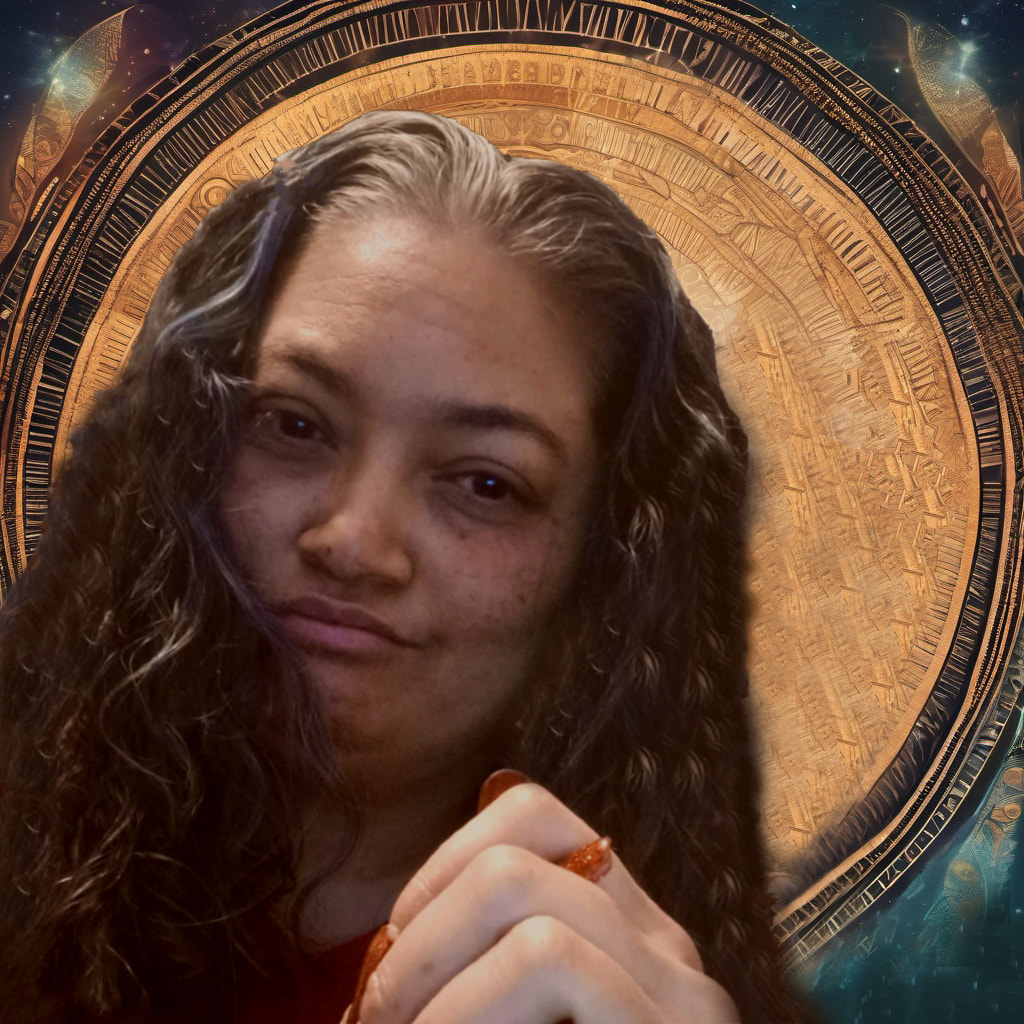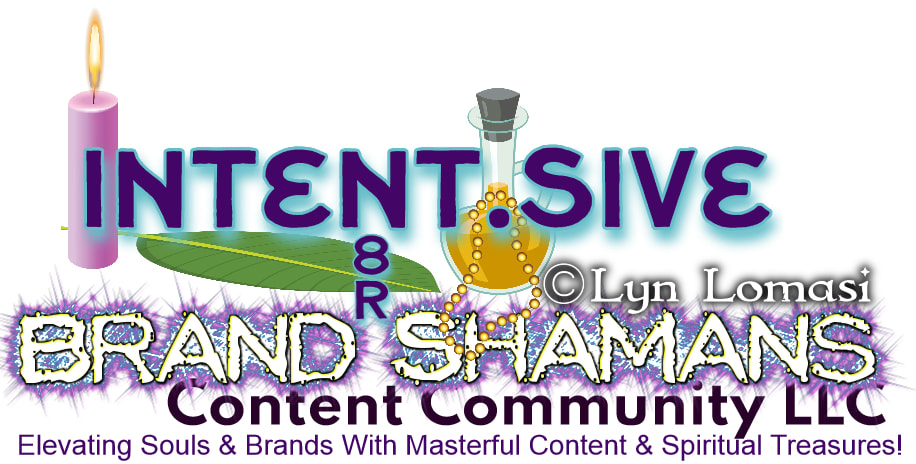|
by Joshua Packard, Fullness of Happy  Dan Brown's very controversial mystery thriller novel "The Da Vinci Code" is one which at points in my life I refused to read. Having watched the movie version, I had a general idea of what it was about. So I felt no need to read the book itself to decide whether it had any merit or not. Essentially, the story follows the actions of protagonist Robert Langdon, a symbologist who studies religious symbols and their meanings. He is framed for the murder of the curator at the Louvre museum in France. This is where many famous works of art, including the "Mona Lise" of Leonardo da Vinci, are on display. The murdered man leaves clues as to who the murderer is. His granddaughter, a very intelligent cryptographer and code breaker, is brought in to assist in solving the mystery. The story turns into a search for the missing Holy Grail. Supposedly, it has been kept hidden by the Catholic Church, for fear it would overturn all that the Church teaches as true. The secret is supposed to be that instead of having been crucified a bachelor, Jesus Christ had actually married Mary Magdalene. It's also said that he had children, leaving a bloodline that lives on to this day. It is claimed that the Church has slandered Magdalene as a prostitute, doing everything it can to hide this secret that she was really the wife of Jesus and mother to His children. There is a lot of dialogue regarding this. Also, there is talk of the Gnostic gospels and other literature proposed for the Bible, but rejected by the Church as having been inauthentic. Essentially, it was not written by the authors they are claimed to be written by. There is also the claim that it wasn't until the 4th century that Jesus was only believed to be divine. This was many centuries after His death, around the time of the rule of Constantine and the Nicene Council. Before then, all His followers believed He was merely a mortal man, and not an immortal incarnation of God. There are also claims by the characters that the Bible had been altered, mistranslated, and ultimately tampered. Over time, this was done to obscure and falsify the "truth" about Jesus, especially about His relationship to Mary Magdalene. While these ideas are interesting and make for an intriguing story, I find them unconvincing. Having studied the Bible and Church teaching, I can assert that the author has not really studied Catholic theology very much. He is trying to promote an idea of "the sacred feminine" and claims the Church regards females and sexuality as dirty and inferior. He tries to turn Jesus into a mere mortal man, and Mary Magdalene into a divine God. He does not pay attention to the reverence given to women by the uplifting of Mary as Mother of God. The book talks about Eve bringing humanity into its downfall. But it says nothing of the ascension brought to humanity through the Blessed Virgin Mary and her cooperation with the salvific plan of God. Having studied a lot of the issues that are touched on in "The Da Vinci Code," the alternate theory of Jesus and His supposed descendants, the novel did nothing to alter my beliefs in the orthodox teachings of Christianity. The release of this book spurned a huge reaction from Christians of all denominations. This lead to all kind of books debunking the claims made in Brown's novel, such as "The Da Vinci Hoax", "Debunking the Da Vinci Code", "The Da Vinci Fraud", etc. I think the dialogue is a good one, and I will suggest that you do take the time to read Dan Brown's novel. You also should look into some of the opposing claims made in books that criticize and argue against the main premise of the Code. At the very least, reading books like this can demonstrate how wild alternate versions of history can be concocted and developed. There are stories that can convince lots of people of something that just isn't true or never happened. Brown says Jesus was married to Magdalene and had children. I say someone made it up. Even in the study of history, it is important to know that lies or fabrications can be made up. These lies can be meant either to tear down ideas one does not like, or to promote and build up ideas that one wants to become fact. You can purchase "The Da Vinci Code" on Amazon here.
0 Comments
by Joshua Packard, Fullness of Happy  It has taken me a while to get to actually reading any of Dan Brown's widely read novels. Tonight I just finished reading "Angels & Demons", which I will follow up with the more well known "The Da Vinci Code". Angels and Demons is a book I find myself having difficulty reviewing. The story is very compelling, interesting and exciting in the action and fast paced puzzle solving required of the main character, religious symbologist, Robert Langdon. The story is laid on a backdrop of a debate about the supposed harmony, or incompatibility, of religion and faith with science and reason. Basically, the story is about a scientist, who is also a Catholic priest, who discovers a way to create antimatter, and supposedly proving that the act of creation of something out of nothing is possible, therefore proving the existence of a Creator God. But apparently someone has taken this antimatter and hidden it somewhere in the Vatican, where all of the world's Catholic cardinals have congregated to elect a new Pope, the most recent Pope having died of a sudden stroke 15 days previously. Robert Langdon is called in to help solve the murder of the priest scientist who created the antimatter and he must solve the riddles left behind by members of the secret society and enemy of the Catholic Church, the Illuminati. A lot of the characters in the story represent different views on the relationship of religion with science, of faith with reason. Some characters believe they are harmonious and complementary, while others belief they are contradictory and at odds, the worst of enemies to each other, with one being better than the other. The novel contains a lot of interesting historical information and interpretation. I don't know how much of it it true, and how much either concocted or embellished to create a more compelling and dramatic story, but I think the historical tidbits make it more interesting, regardless of how historically accurate they are. The action of the novel is fast paced and exciting. The dialogue is usually interesting. I found the book to be hard to put down. Overall, and interesting and fun book to read. Being Catholic myself, some of the jabs to my Church were a little annoying, but I can take a punch, and so can the Church. I probably don't agree with a lot of the author's own opinions and beliefs, but that is ok. I still think I could get something out of this book. I plan to read "The Da Vinci Code" next, which, having seen the film version, I know there will be a lot which I will find inaccurate and untrue. But I will read it, so that I have a better idea of what I am critical of. While you can probably find an inexpensive copy of this book in your local thrift store, if you want to buy it online, you can find it at Amazon here. by Joshua Packard, Fullness of Happy I just finished reading Book 7 of the "Harry Potter" series by British author J. K. Rowling. Overall, I think I would describe the stories as tedious and long winded, but ultimately delightful and satisfying. The series of very long child and young adult friendly novels is about the secret world of magic, wizards and witches, and the years they spend studying their magical craft and talents in the schools of wizardry and witchcraft, under the noses of the largely non-magical "Muggles", who are unaware of their existence for the most part.
Rowling's story is mostly set in the British magical school called Hogwart's. It begins with title character Harry Potter being put under the beastly care of his vicious aunt and uncle in law, after his parents are murdered by the evil and power hungry sorcerer Lord Voldemort, constantly referred to as He Who Must Not Be Named. Potter is notified that he is a wizard and will be attending the school of Hogwart's, which is under the management of noble wizard Dumbledore. Each of the novels describes the events of one year of time at the school, as various professors and fellow students are introduced and the progress of their education in the magical arts is elaborated. As the books progress, there is unfolded a plot of very sinister plans of the attempted return of the evil Lord Voldemort, and his scheme to create a world of Pure blood wizards and witches and the subjugation, eradication, and extermination of all non magical Mudblood and Muggle humans. The story essentially lays out a plot similar to the history of Eugenics, racial "cleansing", and other genocidal movements in the real life history of Earth. It turns out that Harry Potter is the one destined to end the evil plans of Voldemort once and for all. Helped by his friends, especially Ron and Muggle born Hermione, he seeks to understand the forces at work in this epic battle between the powers of evil and good, and figure out how to end the oppression that is taking grip over the world. There are many characters, and they are believable and interesting. I particularly like the character of Hermione, who although born of non magical human parents, is very talented in the magical arts and very astute. She loves to study, learn, read, and gain knowledge, and plays a very important role in the story and her intelligence and wisdom are very necessary to the success of Potter and his friends and allies. There is a great deal of mischief and elucidation of the various spells, jinxes, hexes, curses, and other magical objects and works that are available to the wizarding world. There is humor and silliness in abundance throughout, even as the plot begins to thicken and the story becomes more and more dark and the situation becomes very dire and dangerous in the later volumes of the series. The books are very long, some volumes extending to over 700 or even 800 pages, and, to be honest, at some points it is tedious and boring. I would say that the plot starts to become more interesting around the end of Book 4 (Goblet of Fire) and the beginning of Book 5 (Order of the Phoenix), but there is a lot of development of various characters, magical spells and lore, and there is a lot of dawdling and elucidation of typical nonchalant casual events and dialogue. I won't say it is unnecessary to the story. I think it helps to change the pace of the story so that when it gets interesting, you are rapt with attention, and as I got into the later books, I really wanted to know what sort of twists and surprises were in store. There are a lot of secrets to uncover, quests to conquer, and mysteries to solve, and by the end, the tapestry of all this mystery and adventuring is brought to what I consider a fairly satisfying conclusion and wrap up. When I began to read these stories, I only did so because they were extremely popular, especially amongst young children and adolescents, and I wanted to see what the big deal was. For the first few books, I felt like I was wasting my time, but as I delved further into the series, lent to me by a long time friend of mine, I began to notice that the story was more compelling and the theme more epic than I could have expected. Although I do not think the Potter series rises to the level of other fantasy stories written by British authors such as "Lord of the Rings" by Tolkien, and "Chronicles of Narnia" by C.S. Lewis, the Potter story was very intelligent and compelling. It is not just a popular story. It has been woven into the fabric of English literature and world culture, having been translated into many languages. It is a good demonstration of the power of universal love and critique of the evils of Eugenics ideologies and the philosophy and theology of genocide and racism. If you do decide to start reading, I hope you don't get bogged down in some of the sections where the action drags on. It is worth it to slog through the slow parts and ultimately read it to its dramatic conclusion. At the time of this writing, I have only seen the first four films. I might update this after watching the rest. The only big criticism I have of the movies so far is that there can seem to be a tendency on the part of many of the actors, particularly the extras and minor characters, to overact their parts. But it is OK, I think. The story, while serious in many ways, has its elements and threads of comedy and silliness, which probably anyone acting in would have the tendency to overdo. I expect that the rest of the films are even better, and become more interesting as much as the books progress in their intrigue and ability to grab the attention of the reader. Also, the films have great special effects and visual profundity and beauty and imagination-inspired. The visual effects bring the text to life in a wonderful way. And the sound and music is well composed. If you decide to read the books or watch the films, and I recommend both, as a result of reading this review, I hope that by the end you do not regret having done so. You can find the complete series of Harry Potter books, as well as the Harry Potter movies on Amazon. by Joshua Packard, Fullness of Happy  I recently watched the final movie installment of the "Hunger Games" trilogy, after having read all three books and watched the first three movies. I think I read the first book, then watched the first movie, and then I read the second ("Catching Fire") and final ("Mockingjay") before watching the last three movies. At the time, I believe that the books were free to borrow on Kindle to Amazon Prime members. First off, I will say that I believe the books are much better, much more interesting, than the movie versions. But also, I do not think these stories are very great. They are somewhat mediocre, and I had the hope for something more that was not satisfied. This is one of those works of fiction that I can't really seem to put into words what it was I didn't really like about it. It is not horrible, but just leaves me feeling like I didn't get much out of it. I thought it was worth reading, although I probably would've been better off not watching all the movies. This is one of those books/movies that I watch simply because it is popular and I want to know what the big deal about it is. At least I can say I gave it a shot and wasn't impressed. The story is of a dystopian future, where the citizens of Panem, are split into districts and are forced to send their children into an arena like competition where they have to kill each other off, to win the prize of food for their district. It's a pretty gruesome concept, but I suspect that people like the books and films because they enjoy the gruesome violence instead of abhorring it. It's cool to put a bunch of kids in an arena and have them kill each other off, and in different and exciting ways as well. At least, that is the feeling I get out of it. It reminds me of the game Mortal Kombat, where the best part of the game is to watch characters perform bloody vicious Fatalities where they rip off their limbs or cut them in half or crush their skulls or or set them on fire or whatnot. Perhaps Hunger Games is criticizing violent competitions such as this, but I just have the suspicion that part of the fun and popularity of the series stems from the excitement of watching people killed in different ways. I do hope that we never actually come to a point where games and competitions such as this are tolerated and enacted. Let the Hunger Games serve as a warning to us and future generations such that we never actually enter an era where games such as the Hunger Games are thought to be fun or cool or entertaining. Overall, it is worth reading. It is less worth watching, except for the ability to have a visual presentation of the events. I think all the actors in the film versions do a good job, and the effects and everything can bring a little life to the story as it is translated from written novel to full blown motion picture. Read it, watch it. Let me know what you think of it, what it is about, and if you agree of disagree with some of my hypotheses about the usage of the violence in the story. These kinds of stories are becoming very popular today, with franchises such as "Divergent", and "The Maze Runner" and I am sure there are more and will be more of these dystopian survival stories in the future. Let me know if you are aware of any similar stories, especially if they are better than Hunger Games or other such stories. I would love to read different takes on this kind of theme. The Hunger Games trilogy in book form can be purchased here.
by Joshua Packard, Fullness of Happy
Finally, I have finished reading the original Sword of Shannara Trilogy and the followup quadrilogy, “The Heritage of Shannara”. There is a story behind how I was introduced to these novels by Terry Brooks. When I was in 4th grade or so, I was really into the Goosebumps books. I would read really fast, often reading a whole book in a single night. My aunt noticed I read really fast and recommended I read the Shannara books, of which she had the first 7 volumes. At this time, these were the largest books I had ever tried to read, with the first book “The Sword of Shannara” being over 700 pages. It took me a long time to read the first book, and I found that I often would read 20 pages and not remember anything that had happened in them, and have to backtrack to concentrate on them. My reading comprehension skills were very poor for a long time. But these books challenged me, excited, and inspired me. I read the first three books, doing a book report on the second one, and my favorite of the series, “The Elfstones of Shannara” for an 8th grade English paper. Years later, about a few years ago, I decided to read them again and try to break into the followup four book series “The Heritage of Shannara”. I got into the second volume of this series “The Druid of Shannara” and put it down, having lots of other reading to do. Once again, a year or so later, I picked them back up, rereading from the beginning and finally tonight, finishing the last book of those I am reviewing here.
The Shannara series is a fantasy series, being something like Tolkien's “Lord of the Rings”, including elves, dwarves, magic, demons, and sword-fighting. While I enjoy Terry Brooks fantasy world, I find that Tolkien is far better. But Brooks is very good to read, in my view. I know some people who do not like his writing, but I enjoy it. The plot is essentially about the powers of magic, and the use or misuse of magic. That is the theme that runs throughout the series. Essentially, an order of Druids who practice and develop magical powers, is split, where one druid seeks to much power and is corrupted with the power they use and try to destroy the world and rule it. It is somewhat like the Darth Vader and Sith storyline from Star Wars, but this is not an interstellar galactic empire, but a world-bound army where there is no advanced technology, mostly medieval level society and there is magic. But the series follows the adventures of members of a certain family, the Ohmsfords, who are partially descended from the race of Elves which has power of magic. Each volume find the Four Lands of Shannara threatened by some kind of evil, demonic, destructive force or character, and the druid Allanon charges a certain descendant of the Ohmsford, to go on a quest to stop this danger. Often the characters bounce all over the world, of which there is a map at the beginning of each novel, kind of like Lord of the Rings, but totally new, seeking out magical items and weapons and recruiting help along the way as the ever doubtful protagonists seek to bring peace and harmony back into the threatened land of Shannara. Terry Brooks is someone whom I find to be very eloquent in his descriptions of setting, characters, and action. Especially in “The Elfstones of Shannara”, his portrayal and descriptions of battle scenes are very exciting, fast paced and visually imaginative. Whenever he described the setting or scenery or action sequences, I have a very vivid idea in my mind of what the scene looks like, what the characters are doing, and the psychological state of the characters are. The characters are all believable. There is a great variety of characters, and they are easily recognizable and distinguishable. Many of the characters are very likable, and there were feelings of devastation in my soul when certain very important characters are suddenly slain or die, sacrificing themselves to save others and keep the quest going until it is finished. There are some interesting plot twists, and the lore and background story behind the state of the world and the battle between the good magic and lust for power through destructive magic is intriguing. One thing I would like to gladly note is that there is a “Shannara” TV series in production, which will be aired on MTV. The first season is going to cover the second book “The Elfstones of Shannara”, which I mentioned before, is my favorite in the series. I expect this will be very good, and I hope you obtain copies of these books, and enjoy them very much. I liked it, and I hope you like it as much as I did. You might not, but at least give the first book a try, and you'll get a good idea soon of whether you like the book or the author or not. The list below this review is the order in which the books should be read, just so you know. Shannara Trilogy: “The Sword of Shannara” “The Elfstones of Shannara” “The Wishsong of Shannara” The Heritage of Shannara: “The Scions of Shannara” “The Druid of Shannara” “The Elf Queen of Shannara” “The Talismans of Shannara” |
Book News, Reviews, & Info
Archives
November 2018
Categories
All
|
- Brand Shamans
- Brand Healing
- Inner Healing
-
INTENT-SIVE NATURE
- Content & Brand Elevation
- Healing Jewelry & Talismans
- Bath, Beauty, & Self-Care
- Healing Sessions
- Rituals, Herbs, & Altar Supplies
- Gawwwdess Baby Boutique
- Soul Flame Gifts
- Yoga & Meditation
- Books & Media
- Education & Homeschool Resources
- Home, RV, & Decor
- Clothing
- Pets
- Custom Orders
- Monthly Subscription Boxes
- October Festivals
- Herbal Intent
- FLOW-Key Parenting
- About & Contact
- RV, Nature, & Travel Shamans
- Souls Within
- Life & Home
- Heart 'N Mind Homeschool
- The Homeschooling Mommy
- Books & Authors
- Speak Up!
- Pawsitive Pet Parenting
- Manifesterz
- Gifts In Minutes
- Brand Shamans
- Brand Healing
- Inner Healing
-
INTENT-SIVE NATURE
- Content & Brand Elevation
- Healing Jewelry & Talismans
- Bath, Beauty, & Self-Care
- Healing Sessions
- Rituals, Herbs, & Altar Supplies
- Gawwwdess Baby Boutique
- Soul Flame Gifts
- Yoga & Meditation
- Books & Media
- Education & Homeschool Resources
- Home, RV, & Decor
- Clothing
- Pets
- Custom Orders
- Monthly Subscription Boxes
- October Festivals
- Herbal Intent
- FLOW-Key Parenting
- About & Contact
- RV, Nature, & Travel Shamans
- Souls Within
- Life & Home
- Heart 'N Mind Homeschool
- The Homeschooling Mommy
- Books & Authors
- Speak Up!
- Pawsitive Pet Parenting
- Manifesterz
- Gifts In Minutes




 RSS Feed
RSS Feed




